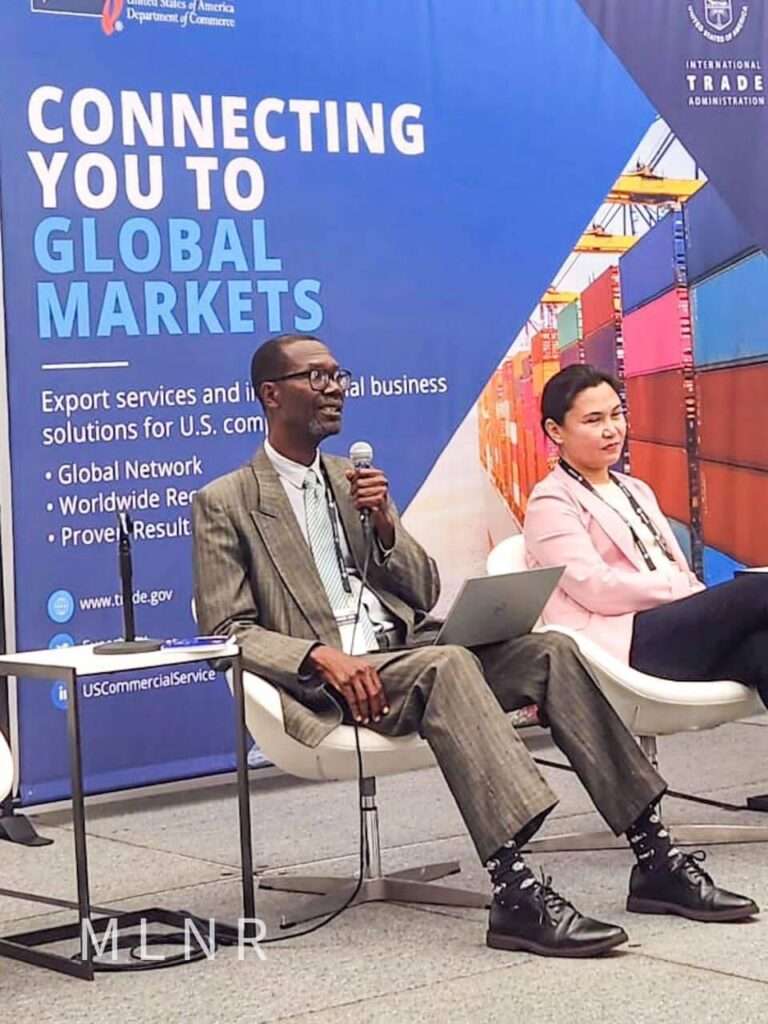Mr. Benjamin Aryee, Advisor on Mining to the Minister of Lands and Natural Resources, has emphasized the Ghanaian Government’s proactive approach in engaging stakeholders to advance key policy objectives in the country’s critical minerals sector.
Speaking at a panel discussion during the MinExpo International 2024, Mr. Aryee underscored Ghana’s rich mining heritage, while outlining new initiatives to maximize the value of the nation’s mineral resources.
“Ghana has a history of over 100 years in mining, particularly in gold, diamonds, manganese, and bauxite, with other industrial minerals supporting local industries,” noted Mr. Aryee.
He further emphasized that the sector continues to provide substantial economic benefits. However, he pointed out that despite these contributions, the country has traditionally operated a “Dig & Ship” model that primarily benefits external economies, resulting in minimal value addition within Ghana.
This model, which exports raw minerals without local processing, has led to “leakages” in value—opportunities for higher returns that are lost to external markets. For decades, Ghana’s minerals were extracted and shipped out in raw form, with little to no beneficiation taking place locally.
The panel discussion, held under the theme “Advancing Critical Mineral Supply Chains,” drew participants from across the globe, focusing on how countries can leverage their mineral wealth to strengthen their economies and build resilient supply chains.
Mr. Aryee’s contribution highlighted Ghana’s efforts to pivot from traditional extraction methods to a more sustainable and value-driven approach to mining.
Ghana’s mining sector has a long-standing legacy, dating back over a century. The industry, primarily driven by gold production, has been a significant contributor to the nation’s Gross Domestic Product (GDP), foreign exchange earnings, and government fiscal revenues.
Government’s Strategic Policy Framework

In response to this challenge, the Government of Ghana has introduced a two-pronged Broad Mineral Policy Framework aimed at addressing the inefficiencies in the traditional mining model and creating more value for the country. The framework, aligned with the African Mining Vision (AMV), focuses on two main objectives:
Mr. Aryee highlighted the government’s proactive stance in engaging stakeholders and implementing policies to transform the mining sector. This involves identifying and responsibly mining new and under-exploited minerals beyond the traditional focus on gold and a few other resources.
Mr. Aryee again revealed that the government of Ghana seeks to develop the full extent of the value chain for each mineral within the country to the greatest extent possible.
“Government has, set up dedicated agencies, the Ghana Integrated Aluminium Development Corporation (GIADEC) and the Ghana Integrated Iron and Steel Development Corporation (GIISDEC), to actively facilitate the local development of the value chains of, notably, the bauxite-aluminium and iron & steel subsectors, respectively.”
Mr. Benjamin Aryee, Advisor on Mining to the Minister of Lands and Natural Resources
By doing so, the government seeks to maximize the economic benefits of its mineral resources, from extraction to processing and manufacturing, rather than simply exporting raw materials.
A key highlight of Mr. Aryee’s presentation was the recent commitment by the current owners of Ghana’s manganese mine, which has been operational since 1916, to establish a state-of-the-art refinery.
The USD 450 million investment aims to upgrade the manganese content of the mine’s output from 27% to 40%, representing a significant value addition step within the local economy.
“This investment marks a notable milestone in the government’s push for value addition within the mining sector,” Mr. Aryee stated.
The refinery will not only enhance the quality of manganese produced in Ghana but also contribute to the global supply chain of refined manganese, a critical material used in various industries, including steel production and battery technologies.
Mr. Aryee emphasized that the government’s commitment to stakeholder engagement is central to the successful implementation of these policies. By involving industry players, local communities, and international partners, Ghana aims to ensure that its mining sector evolves in a sustainable manner that benefits both the country and its global partners.
The focus on critical minerals is particularly timely as the world transitions towards more sustainable energy solutions, where minerals like bauxite (for aluminium) and manganese are essential components for technologies such as electric vehicle batteries, wind turbines, and solar panels.
Ghana is positioning itself to be a key player in the global supply of these critical minerals, with the potential to not only boost its economy but also contribute meaningfully to global sustainability efforts.
READ ALSO: Biden Makes Final Address To UNGA




















